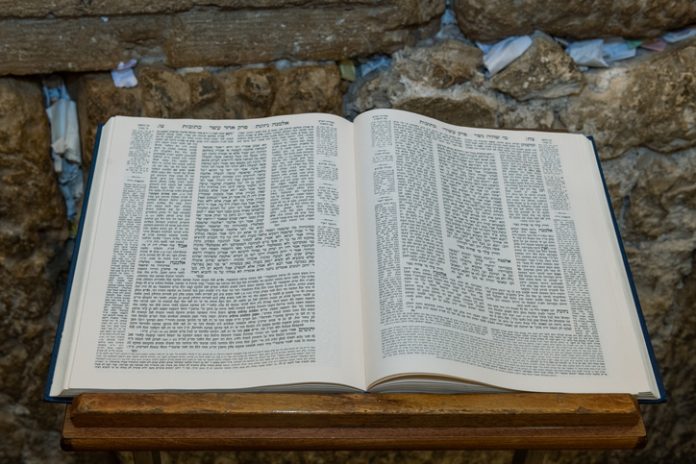
By Rabbi Aaron I. Reichel, Esq.
Jews celebrate Thanksgiving multiple times a day, but sometimes we can come up with new reasons to thank Hashem and sometimes even the Daf Yomi triggers insights into thankfulness that we have not thought of.
The section I am referring to is the page in Baba Batra that we studied on Thanksgiving (156b). The page begins somewhat inauspiciously and then heads in the opposite direction. Rather than discussing the minimum of 100 blessings we are to recite every day, the passage begins with two curses. While discussing the prohibition of mixing two plants (kilayim), Rabbi Eliezer cursed the sons of Rochel. Why? Rav Yehuda says that Shmuel said that they were maintaining thorns in the vineyard and did not uproot them, since it is prohibited to sow a field with a mixture of seeds. Rav Yehuda conforms to his line of reasoning as we learned in the Mishna (Kilayim 5:8). With regard to one who maintains thorns in a vineyard, Rabbi Eliezer says: “He has proscribed the vineyard, rendering it forbidden due to the prohibition against diverse kinds. And the rabbis say that only a plant, the likes of which people usually maintain, proscribes a vineyard and renders it forbidden.”
The Gemara asks, “If it was saffron that grew in the vineyard, it is useful for seasoning and dyeing, and therefore proscribed in a vineyard, but what about the thorns? For what are they useful?” Rabbi Hanina answers: “According to Rabbi Eliezer, it is because in Arabia they maintain the thorns in their fields for the camels.” (Rabbi Eliezer held that since thorns are maintained in one place, they are considered useful everywhere.)
The thorns in Arabia served a purpose, but to appreciate them we really have to look at the anatomy of a camel. Camels are designed to survive in a harsh desert environment and have tough mouths that can chew thorny plants like cactus. Cacti are a good source of water and nutrients for camels in arid regions. The thick lips and tough palates of camels allow them to avoid getting hurt by the thorns, and they can eat the flesh of the cactus for hydration and sustenance.
Because the Talmud points out that thorns are not necessarily destructive, and may even be worth maintaining with human intervention, we now have two additional reasons to be thankful on Thanksgiving and on every other day of the year: for the cacti and the camels. Without the cacti and camels that helped Eliezer’s camels reach the well where he met Rebecca, Eliezer might have had to settle for a local girl for Yitzchak, in which case, Jewish history might have been quite different.
Applying the lesson of the camel to today’s world of shidduchim, without the shidduch résumé and the ability of people to circulate it via the Internet and apps, there might be far fewer shidduchim. At the same time, the old-fashioned way also worked well, surprisingly, even without a well for the future matriarchs to gather. In fairness to the millions of Jews happily married without a shidduch résumé and a computer, we must keep in mind the Gemara states “Arbaim yom kodem l’yitzras havlad bas kol yotzais v’omeret bas Ploni l’Ploni—Forty days before the embryo is created, a Heavenly voice emanates and decrees who is for who.” The bottom line is that shidduchim are all from Hashem, and even when some end in divorce, we often see much good that has come from them.
The final question is: Did Eliezer’s camels lead to a better result than our present shidduch system of résumés and apps? Let’s take this opportunity in the spirit of Thanksgiving to thank G-d for the camels of antiquity, the dating apps of the present, and the unlimited potential of the future. n
Rabbi Aaron I. Reichel, Esq., is a New York attorney, a foundation administrator, an author, and a former editor whose books he authored, edited, and/or supplemented include biographies of Rabbi Herbert S. Goldstein (The Maverick Rabbi), Harry Fischel (founder of Machon Harry Fischel and central participant in many other institutions), and Chief Rabbi Shear Yashuv Cohen (also a war hero and Deputy Mayor of Jerusalem), plus an inspirational book on baseball, “Step Up to the Plate.”













